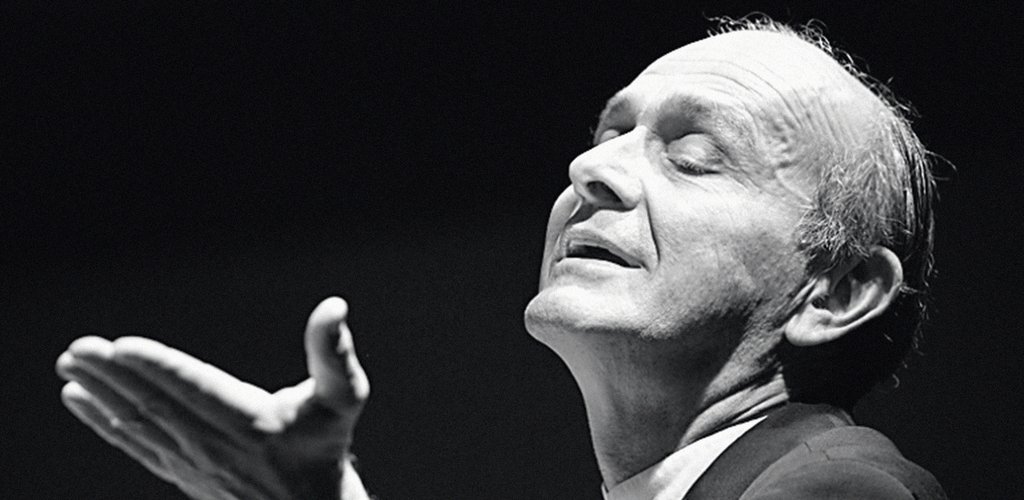Internationally renowned violinist and conductor Gábor Takács-Nagy, the first guest conductor of the Budapest Festival Orchestra, was named a Meritorious Artist of Hungary on 15 March this year. Júlia Váradi spoke with him about the award and his upcoming concert in the Haydn-Mozart series.
First of all, congratulations! How does this award stack up with the many recognitions you have received to date?
I don’t rank awards, because I am delighted by each one. It does feel good every time to receive a pat on the back, because it is important to be recognized. Receiving the award will not, however, expand my knowledge of Bach, Mozart or Beethoven. But this kind of feedback does boost one’s self-confidence.
I understand you have some difficult months behind you. Were these related to COVID?
Yes, I contracted the coronavirus last fall, and just when I recovered, I had to have heart surgery because of serious arrhythmia issues. Thankfully, both of these are now behind me, and the surgery went so well that I feel stronger today than ever before.
Like the proverbial prince who was defeated by the dragon, but was then reborn a hundred times stronger?
I hope that that is exactly the case. I am now devoting all my energy to upcoming concerts.
You will soon be in Budapest again, returning from Switzerland where you reside. In April, you will be conducting the next concert in the BFO’s Haydn-Mozart series at the Liszt Academy. It is still too early to tell whether or not there will be a live audience, but you are moving forward with the rehearsals and the concerts just the same – is that right?
Of course, I will be there. I can hardly wait to begin rehearsing the new pieces with the BFO’s musicians. I am just now beginning to immerse myself in the works which were, by the way, selected by the winners of the Sándor Végh Competition. In addition to works by Mozart and Haydn, there will be pieces by Grandjany and Cimarosa. I am delighted at the prospect of introducing the audience to lesser-known composers in this way. I enjoy playing little-known pieces very much.
Why is that?
Because I like discovering values that are new for both the audience and me. It would be a shame to die without never even learning about all these interesting things. That is not to say we should not play famous, beautiful pieces, but we always need something new. It rejuvenates us all. It is also great in these instances that the orchestra has never performed these pieces either. This makes it such an amazing experience – especially with a fabulous orchestra like the BFO – to discover them together. In other words, the situation is not complicated by having someone in the ensemble who is already familiar with the piece from an earlier performance. Everyone starts out from zero and we take it from there, together. It is tremendously exciting for all of us to approach it with fresh ears and an open mind. Grandjany’s music is a beautiful symphonic piece with a harp and a horn playing the solo, and Cimarosa’s piece is unique, featuring two flutes, one of which we will replace with an oboe for this performance. This is a seldom-played piece of music. Both are fascinating and original, however.
Marcell Grandjany was born in Paris. Are his pieces typically French in style?
Yes, very much so. Debussy’s and Ravel’s influences are clearly apparent: their harmonic worlds made lasting impressions on Grandjany’s musical thinking. He himself, by the way, was a renowned harpist.
He performed primarily in the United States as a musician and a teacher, until his death in 1975. His works are characterized by a harmonic world akin to romanticism, while being composed of interesting, mosaic-like fantasy fragments. I can’t think of anything that would be similar.
Cimarosa, the Italian composer known for his opera works, is an entirely different world. How do these pieces fit with Mozart and Haydn?
I never found it problematic when a concert did not follow some kind of strict conceptual arc. This makes one’s mind and ears more flexible. So it is not at all disruptive for the same evening to feature works very different in style or composed in different periods and following different approaches. In fact: this sometimes even makes it particularly exciting. The saying “variety is the spice of life” does hold true!
Finally, I have to ask you about the challenges being playing on a stage with no audience present: not hearing their breathing, their coughs or even the rustling of their candy wrappers must feel like something is missing. How much of an effect has this had on you?
This is a strange situation, because a part of me does miss the presence of the audience in the empty hall, but I am also encouraged by the fact that an increasing number of people are watching the concerts at home, online. Most people today are filled with anxiety because of the coronavirus, and because of the various other problems stemming from it. I feel like music helps us soothe their soul, literally. Music is known as medicine for the soul, since it speaks in a spiritual language. In this way, I feel we can do a lot to help those who are not with us in person but are listening from home. Perhaps this helps keep their spirits high. One must never forget all the beauty in life. This notion inspires me and makes up for the empty concert hall.
